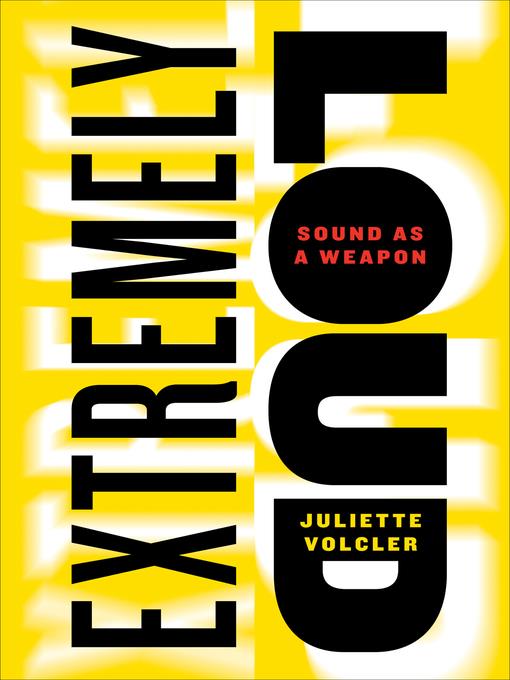
Extremely Loud
Sound as a Weapon
کتاب های مرتبط
- اطلاعات
- نقد و بررسی
- دیدگاه کاربران
نقد و بررسی

March 4, 2013
Be it in the form of acoustic weapons capable of dispersing unruly crowds, as a means of intimidating or confusing enemy combatants, or to aid in interrogation, sound has increasingly been employed as a tool of subjugation and control in modern warfare. French journalist Volcler postulates that these developments “scramble the boundaries between war, culture, and games,” and, in a media-saturated environment, they have become palatable nonlethal methods of repression and aggression. Indeed, many of the world’s major powers, including the U.S., Germany, and the former Soviet Union, have sought to develop acoustic weapons. Despite mixed results, such work has led to the development of many technologies, such as the Long Range Acoustic Device (LRAD), a sound cannon that was used in 2009 by the Pittsburgh, Pa., police against G20 protestors. More pernicious, however, was the U.S. military’s use of songs by AC/DC, Metallica, and other heavy metal bands to rattle enemies in the field of battle and as part of “enhanced interrogation” techniques during the war in Iraq. Thorough and well researched, this is a timely glimpse into the development of these revolutionary technologies and approaches.

May 15, 2013
Everything you ever suspected or feared about music as a weapon, sound as torture and the expansion of the military-industrial complex to encompass entertainment. Much of this could be very funny if the implications weren't so serious and the tone of the journalistic prose so matter-of-fact. As the aural equivalent of waterboarding, the United States has subjected trainees to "babies crying inconsolably" and "a Yoko Ono album." Before the Branch Davidian attack in Waco, Texas, the FBI subjected the sect to "jarring music including Tibetan Buddhist chants, reveille, marches, Mitch Miller Christmas carols, selections from Alice Cooper, and Nancy Sinatra's 1960s pop ode, 'These Boots Are Made for Walking.' " The composer of the Barney singalong, "I Love You," thinks the very concept of his music as a repetitive torture device is "absolutely ludicrous," but any parent subjected to that tape loop would beg to differ. A French broadcast journalist, Volcler examines the use of sound in the "war of the mind" and as "no-touch torture," from a physiological perspective and within a historical perspective, showing how long the potential of sound as weaponry has been recognized, how widespread is its use and how strong has been the condemnation. She shows how easily and how often a sonic assault can lead to disorientation, diarrhea and even death. Yet so often, the effectiveness of the weaponry lies in the ear of the target, and the line may well be blurring or disappearing between what is entertainment within one culture and an aggressive assault on another. As the book quotes James Hetfield of Metallica, "We've been punishing our parents, our wives, our loved ones with this music forever. Why should the Iraqis be any different?" Who needs nuclear weaponry when we've got Eminem? Dry but disturbingly illuminating in the possible ramifications.
COPYRIGHT(2013) Kirkus Reviews, ALL RIGHTS RESERVED.

























دیدگاه کاربران